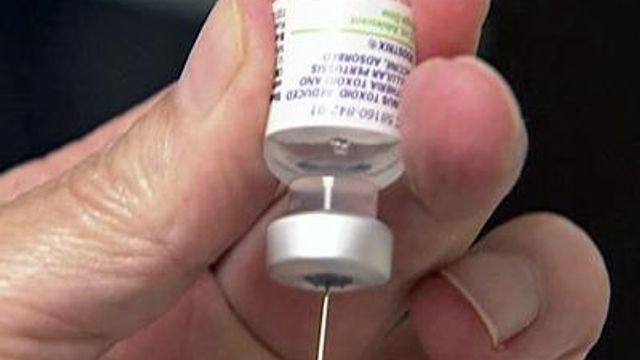Adults need regular vaccinations, too
Because schools require them, most children in the United States get the recommended vaccines to protect them from crippling or even life-threatening diseases.
“Ninety to 100 percent have had all their childhood shots. We do a terrible job in adults. There's no organized system for giving them their vaccines, pneumococcal and flu vaccines, you know, up to 30, 40, 50 percent have never received their vaccines,” UNC Epidemiologist Dr. David Weber said.
Weber said while children routinely get their tetanus shots, everyone needs a tetanus booster every 10 years.
“Many people, as they get older, forget to get their tetanus boosters. So much of the tetanus disease, and we don't see many cases in the U.S., actually occur in older individuals,” Weber said.
Females from age 9 to about 25 should get the HPV vaccine to prevent the human papilloma virus, Weber said.
The pneumococcal vaccine is recommended for children from 2 to 24 months of age, for people ages 65 and older and for most people with underlying chronic medical conditions.
The zoster or Shingles vaccine is recommended for adults ages 60 and older, whether or not they remember having the chicken pox as a child.
But there are exceptions for those taking the zoster vaccine.
“Now this is a live virus vaccine, so it can't be used safely in people who are immuno-compromised: HIV, cancer, high-dose steroids,” Weber said.
Everyone should always get the annual seasonal flu shot and this year people should consider getting the H1N1 flu vaccine, Weber said.
Weber said immunization efforts need to improve in inner cities, among low income groups and immigrant populations who have less access to health care.











